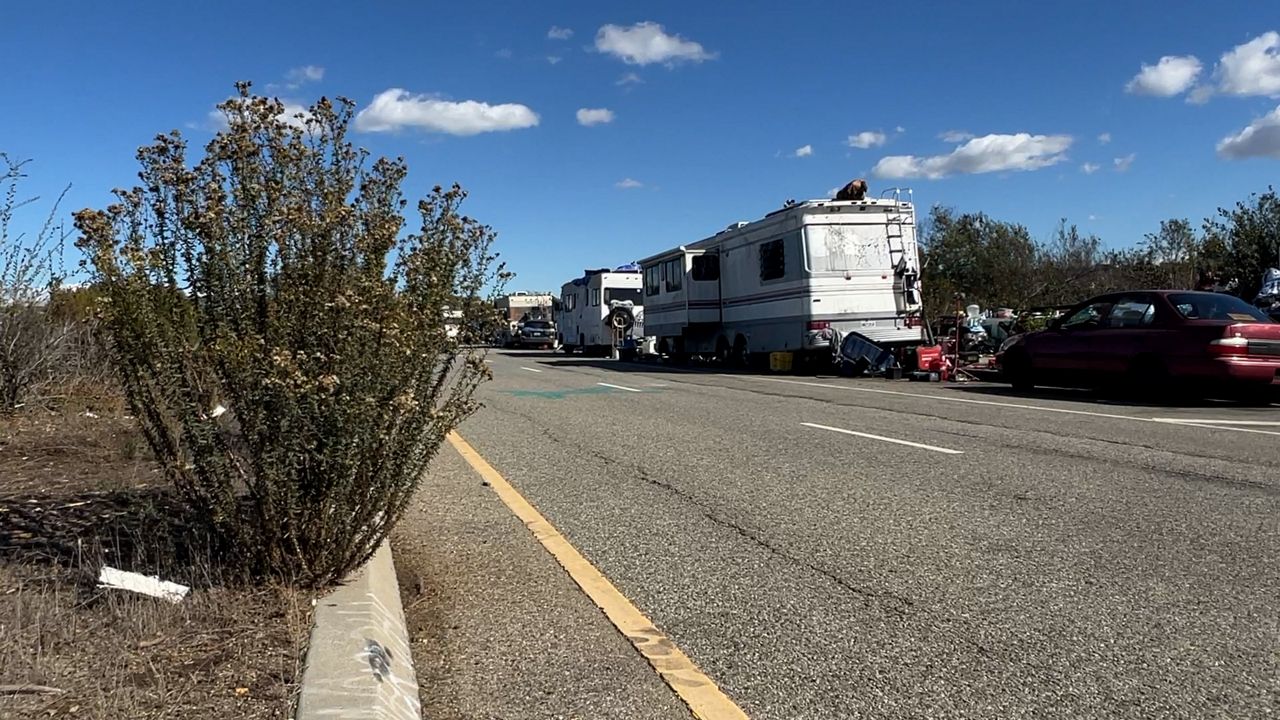LOS ANGELES (CNS) — The Los Angeles City Council voted Tuesday to explore a citywide rehousing strategy for people experiencing homelessness who are living in recreational vehicles.
The council directed the city administrative officer, the Los Angeles Homeless Services Authority and the Department of Transportation to report back in 60 days on a strategy that includes:
- identifying and securing appropriate interim shelter and housing for people living in RVs
- incentives for voluntary relinquishment of RVs used as dwellings
- expanding Safe Parking programs to include oversized RVs in 24-hour Safe Parking programming
- demolishing RVs after the resident moves into interim or permanent housing, with consent of the owner
Nearly 6,500 people experiencing homelessness in Los Angeles are living in a total of about 4,000 RVs, a 40% increase since 2018, according to LAHSA’s point-in-time count. That represents 22% of the city’s total unsheltered population.
According to a motion by council members Nithya Raman, Curren Price and Marqueece Harris-Dawson, RVs are in “grave disrepair, meaning that people living in them face unsanitary and sometimes dangerous conditions.”
The motion claims that the city’s current approach of banning oversized vehicles on certain streets has “proven to be largely ineffective” because RV dwellers move to other streets.
“It is clear that the city needs to come up with a more effective and holistic response to vehicular homelessness,” the motion states.
“We don’t have a single RV safe parking lot that really functions here in the city of Los Angeles at this moment,” Raman said at Tuesday’s meeting. “We are not creating the kinds of responses that can actually get people who are experiencing homelessness indoors, that can actually provide the kind of mental health care that we need on the streets to get people from an encampment into a home.”
Earlier this month, Councilwoman Monica Rodriguez introduced a motion seeking to expand a pilot program in her district that offers people living in RVs voluntary transition into interim or permanent housing, and incentives to trade in their vehicles for disposal.
“The challenges that exist with RVs is multifaceted,” Rodriguez said. “There’s not a one-stop shop as it relates to RV encampments. It’s a very complicated issue.”



